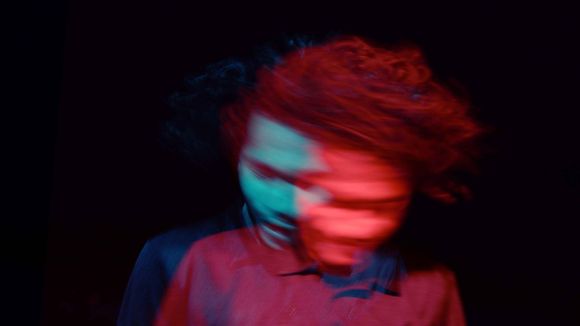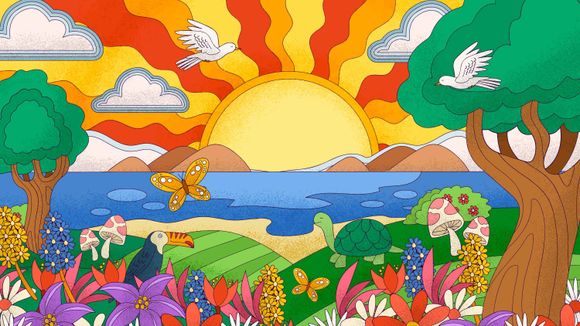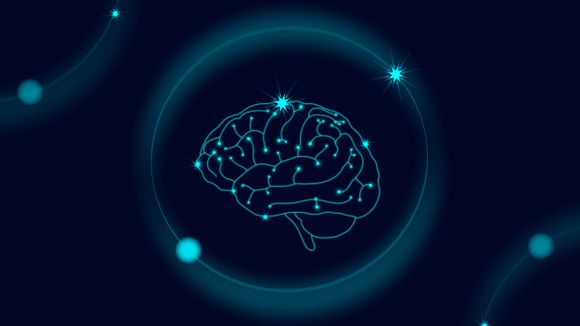What is DMT?
DMT is the common term for N,N-dimethyltryptamine, a potent psychedelic drug. Its chemical structure is similar to that of serotonin and melatonin and is thought to bind to certain serotonin receptors in the brain. [Ref. 1]
Since the 1960s, scientists believe that some mammals can produce DMT in their bodies. Its presence in the brains of rodents has been reported, and traces of it have been found in the human body and cerebrospinal fluid. What exactly makes natural DMT continues to be an extremely interesting field of study.
Since DMT is also found in various plants, teas containing the drug have been consumed by many indigenous peoples of South America for at least 1,000 years, often for religious purposes. DMT received serious scientific attention as a therapeutic drug only in the 1950s.
In fact, the German-Canadian chemist Richard Manske was the first to synthesize DMIT in 1931. Why this is happening remains a mystery. [Ref. 2]
As a drug, DMT was called the "molecule of the spirit" by Rick Strassmann, associate professor of psychiatry at the University of New Mexico Medical School, because of the similarities between the effects of the drug and intense religious or spiritual experiences.
Like psilocybin, DMT is believed to exert its psychedelic effects by activating the 5-HT2A receptor. It has been found that very quickly metabolized in the body. In one study, only 0.16% of the intramuscular dose of DMT was detected after a 24-hour period.
Compared to psilocybin, DMT studies are less advanced. It is in the early stages of preclinical and clinical trials for use in depression and addiction.
How does DMT work?

Unlike more well-known LSD or psilocybin, the effects when taking DMT are often quite short, sometimes lasting only five minutes. However, the short duration was more than offset by its intensity, with users reporting extremely vivid hallucinations. Typical doses evoke visions of complex, multicolored geometric patterns, loss of ego and altered thought patterns. [ref. 3]
DMT has another unique characteristic: high doses of it can lead to an event called "tripp", at which point the users are no longer perceived as being in the same dimension. It is possible that the person experiences separation of the astral from the physical body. The new "location" can be fantastical, ranging from hyperspace to non-eval spheres. These strange places are often inhabited by even more strange creatures with which some people claim to have communicated.
"Machine elves," as called by ethnobotany Terrence McKenna, who promotes DMT in certain circles, were reported by users after Dr. Steven Shara's experiments. The frequency with which these beings are reported may explain the use of DMT as a religious means of contact with the spiritual world. Although some users speculate on whether these creatures are real, author and psychedelic author James Kent stresses that they are hallucinations. [Ref. 4]

Is the use of DMT legal?
Generally speaking, DMT is not legal for use. The Convention on Psychotropic Substances - An International Treaty signed in 1971 prohibits the medicine, but not the plants containing it. [ref. 5]
Many countries have their own bans on the substance or plants from which it can be derived. However, some jurisdictions have exceptions for the use of products containing DMT (such as ayahuasca) by certain religious groups as part of their rituals. In our country, this indolin alkaloid falls among the banned drugs.
Can DMT be used as a medicine?
Current studies focus on how the drug works in the brain and how it can be used to treat mental illness. As Dr. Carol Rutledge of Small Pharma - an English neuropharmaceutical company explains in an interview with Freethink, the extreme effects of this remedy may be exactly what some patients need. This is especially true when common drugs such as SSRI (selective serotonin reabsorption inhibitors) have failed. In this regard, he says:
"Many of the mental health disorders such as depression, post-traumatic stress disorder, even OCD, have this real negative thought process that leads to ingrained neural processes. And it's almost impossible to get out of them and I think that's why SSRI actually don't even try to do that. What psychedelics do is interrupt this path, cut off these neural connections and then increase neural connectivity and synaptic connectivity."
Early reports from Small Pharma have suggested that DMT, along with therapy, may be used to help break away from unwanted behavioural patterns. [Ref. 6] Other studies have also suggested that it may prove useful for depression and anxiety. Dr Rutledge suggests that stimulated connectivity between neurons allows the brain to "reset." As a result, these conditions can be more effectively treated.
There is also a discussion about how mystical drug-induced experiences can help people with mental health problems explore the root causes of these problems.








